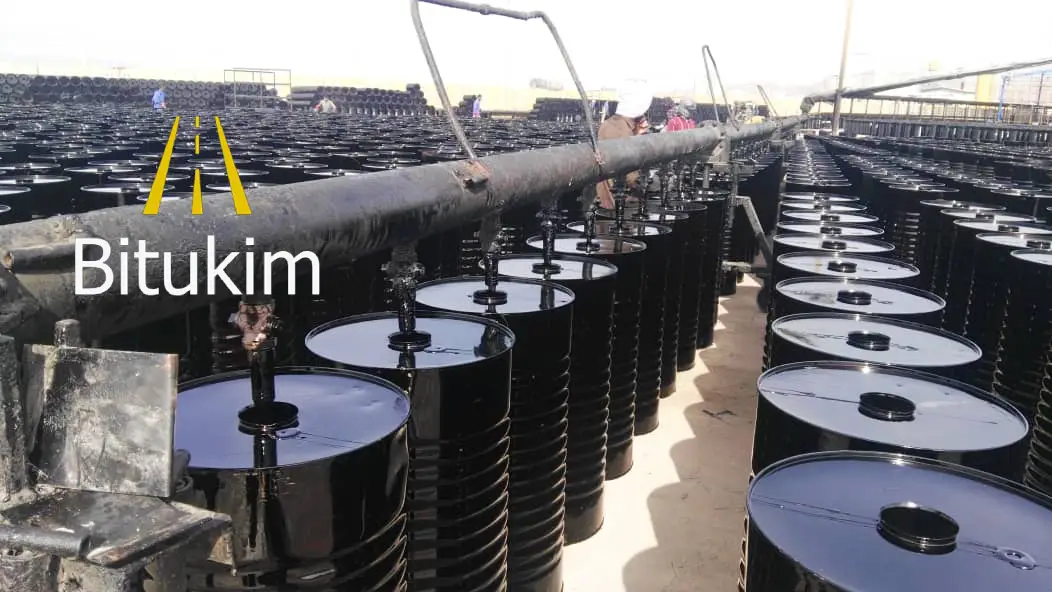What is VG 10 Bitumen?
VG Bitumen 10 is a viscosity-graded bitumen with a viscosity of 800 Poise at 60°C, making it the softest grade in its category, ideal for cold climates and low-traffic roads. Its low viscosity ensures excellent flow and workability, facilitating easy application in spraying and surface dressing tasks.
Additionally, VG 10 Bitumen offers good adhesion properties, enhancing the durability of asphalt mixes in cooler environments. It is commonly used in regions with milder weather conditions, where flexibility and ease of handling are critical for effective road construction and maintenance.
Temperature Suitability
VG Bitumen 10 is best used in regions where air temperatures range from -10°C to 25°C. It is also seen as a modern replacement for the traditional 80/100 penetration grade in cold climates.
Advantages of VG 10 Bitumen
Formulated for cold climates (below 30°C)
Eases spray and coating applications
Safe handling because of high flash point
Offers cold flexibility and strength
Where is VG 10 Bitumen Used?
VG 10 Bitumen is used primarily where there are cold to moderate climatic conditions and light traffic loads. Some examples are urban domestic roads, rural roads, and surface dressing operations where the objective is to create a stable, long-wearing road surface without heavy-duty resistance. VG 10 would be most appropriate for the average temperature of -10°C to 25°C, as its viscosity in this range of temperatures neither makes it too brittle nor too soft.
In these conditions, VG 10 offers adequate adhesion, water resistance, and surface integrity required for road safety and light-traffic performance. It is especially useful where seasonal freeze-thaw exists, when the binder must be stable without crack and premature aging.
However, VG 10 is not suitable for tropical or extremely warm conditions, where pavement surface is subjected to elevated temperature and traffic loads. In those places, its relatively low viscosity tends to lead to rutting, bleeding, and deformation by the stress of constant or heavy traffic. For those areas, more viscous grades like VG 30 or VG 40 should be used because they offer higher heat resistance as well as mechanical stress resistance.
In summary, VG 10 is appropriate for light-traffic road use in temperate weather where it will function effectively without the risks of softening or rutting.
Uses of VG 10 Bitumen
VG 10 Bitumen is a highly versatile product with extensive uses in infrastructure and industrial applications, particularly in cold climates with moderate traffic conditions. With relatively low viscosity, it is convenient to work with, especially for spraying, coating, and binding. The major areas of application are highlighted below:
1. Road Construction
VG 10 is used extensively in constructing low-traffic roads, suburban streets, sidewalks, and parking lots. Its soft nature allows it to be easily mixed and compacted with a tendency to find extensive use in surfaces not intended for high rut resistance.
2. Asphalt Paving & Patching
This grade is widely used in hot mix and cold mix asphalt, especially in road repair, pothole repair, and resurfacing. Its properties help create flexible pavement layers that can resist cold cracking.
3. Roofing Applications
VG 10 is a significant component used in manufacturing roofing materials, including:
Asphalt shingles
Roll roofing
Built-up roofing systems
These products utilize the weather seal and ultraviolet-resistant properties of the bitumen.
4. Waterproofing
VG Bitumen 10 is also widely used for sealing structural gaps, cracks, and joints. It forms a water-proof coating for water seepage prevention, which is critical for:
Foundations
Basements
Bridge decks
Concrete structures
5. Pipe Coating
VG 10 is applied as a protective coating to metal pipes in industrial use. It inhibits corrosion, offers insulation, and extends the life of water, oil, and gas transmission lines.
6. Modified Bitumen and Emulsions
VG Bitumen 10 is typically used to produce bitumen emulsions and polymer-modified bitumen. This is mostly found in India, where these formulations are used for universal road conditions and climatic conditions.
Properties of VG 10 Bitumen
Viscosity (60°C): Not less than 800 Poise
Penetration (25°C): 80–100 dmm
Softening Point: 40–50°C
Flash Point: > 220°C
Ductility: ≥ 75 cm at 25°C
Density: 1.01 to 1.05 g/cm³
Solubility: Fully soluble in organic solvents
Packing of Viscosity Grade 10
VG Bitumen 10 is typically packed and transported in a variety of ways Here are some common packing options for Bitumen VG 10:
- New Steel Drum => 180Kg
- Bitubag => 375Kg
- Bulk in vessel
- Bulk in Flexi Bag
- Bulk in Tanker
Why Choose VG Bitumen 10 ?
Suitable for colder regions where cracking is an issue
Easier application in spraying and coating uses
Stable and resilient at low-temperature conditions
Compliant with modified bitumen products
Cost-effective solution for light-duty paving
Specification of VG Bitumen 10
| Specification | Unit | Value | Test Method |
|---|---|---|---|
| Absolute Viscosity, at 60 ◦C | Poise | Min 800 | ASTM D4402 |
| Kinematic Viscosity, at 135 ◦C | CST | Min 250 | ASTM D2170 |
| Flash Point | ◦C | Min 220 | ASTM D93 |
| Solubility in Trichloroethylene | %WT | Min 99 | ASTM D2042 |
| Penetration Value, at 25 ◦C | 0.1mm | 80-100 | ASTM D5 |
| Softening Point | ◦C | Min 40 | ASTM D36 |
| Viscosity Ratio, at 60 ◦C | ◦C | Max 4 | ASTM D4402 |
| Ductility at 25 ◦C , after thin film oven test | Cm | Min 75 | ASTM D113 |


